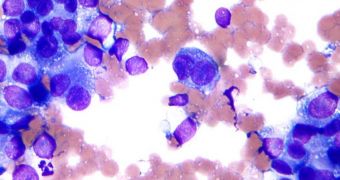According to a new study, it would appear that some of the most commonly used painkillers, including aspirin, are likely to protect against the development of skin cancer. Exactly how this discovery will be incorporated in preemptive approaches against the condition is still unclear.
Details of the investigation were published in the latest early online issue of the esteemed, peer-reviewed medical journal CANCER, which is edited by the American Cancer Society (ACS).
Painkillers are known to have a wide array of positive benefits on the human body, but researchers had no evidence that preventing the development of skin cancer was among them. The fact that aspirin has this effect as well was also unknown, but it may account for a lower incidence of skin cancer in some.
On the other hand, painkillers can also have destructive effects, if they are consumed without a prescription, and in large quantities. Among teenagers in the United States, for example, these drugs are the most likely to be abused, EurekAlert reports.
The research team, from the Aarhus University Hospital, in Denmark, investigated the protective effects of non-steroidal anti-inflammatory drugs (NSAID) on basal cell carcinoma (BCC), squamous cell carcinoma (SCC), and malignant melanoma (MM), three different types of skin cancer.
NSAID include aspirin, ibuprofen, and naproxen, among other compounds that are found in both prescription and nonprescription drugs, says study team leader Sigrún Alba Jóhannesdóttir, Bsc.
In the study, scientists included 1,974 cases of SCC, 13,316 cases of BCC and 3,242 cases of MM. Data obtained from these individuals – spanning from 1991 to 2009 – were then cross-referenced with medical information on 178,655 individuals who did not suffer from any type of skin cancer.
People who had filled out two NSAID prescriptions or more during the study period had a 15 percent lower chance of developing SCC and a 13 percent lower chance for MM. This was especially true if the drugs were consumed at high rates.
“We hope that the potential cancer-protective effect of NSAID will inspire more research on skin cancer prevention. Also, this potential cancer-protective effect should be taken into account when discussing benefits and harms of NSAID use,” Jóhannesdóttir explains.

 14 DAY TRIAL //
14 DAY TRIAL //